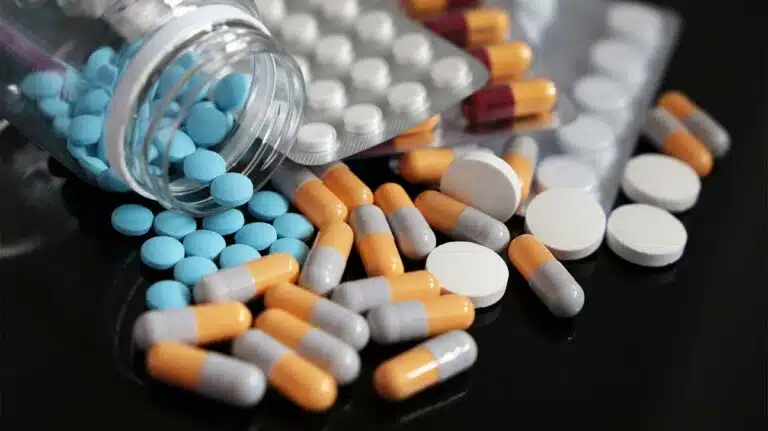Concerta Dosage & Prescription Info

The recommended dosage of Concerta depends on the severity of your ADHD symptoms, your age, and your overall health.
Concerta is the brand name for methylphenidate hydrochloride, a central nervous system stimulant medication that is used in the short-term treatment of attention deficit hyperactivity disorder (ADHD) and narcolepsy.
Methylphenidate is the same active ingredient that’s in Ritalin, and it treats ADHD symptoms like inattention and impulsivity.
Concerta works by boosting the neurotransmitters dopamine and norepinephrine in the brain. It does this by blocking the reabsorption of neurotransmitters, leading to better focus and less hyperactivity.
Concerta Strengths
Concerta comes as extended-release tablets. The generic methylphenidate can be found in an immediate-release formulation but Concerta itself only comes as an extended-release in:
- 18 mg
- 27 mg
- 36 mg
- 54 mg
Concerta Dosage
The dose of Concerta prescribed to someone depends on age (adult or a child), symptoms, other prescribed medications, and overall health.
However, it’s recommended that you take the drug once a day in the morning and swallow the tablet whole.
Children
The recommended starting dosage of Concerta for children 6-17 years of age is 18 mg taken by mouth once a day. If they need a higher dose, their healthcare provider may increase it by 18 mg increments per week.
The maximum pediatric dosage of Concerta for those aged 6-12 is 54 mg per day. For adolescents aged 13-17, the maximum dosage should not exceed any more than 72 mg per day.
Concerta should not be prescribed for children under 6 years old.
Adults
The FDA has approved Concerta for the treatment of ADHD in adults up to the age of 65. For adults new to Concerta, the recommended starting dose is between 18-36 mg per day.
The daily dose can be increased by their healthcare professional in 18 mg increments each week until their symptoms are manageable.
The maximum dosage for adults should not go any higher than 72 mg per day.
Side Effects Of Concerta
Like other ADHD medication, Concerta has potential for side effects that can range in intensity from mild to severe.
The most common side effects of Concerta may include:
- irritability
- difficulty falling asleep or staying asleep
- dizziness
- nausea
- vomiting
- loss of appetite
- dry mouth
- weight loss
- blurred vision
- stomach abdominal pain
- diarrhea
- drowsiness
- uncontrollable movement of parts of the body
Drug Interactions
If you’re taking Concerta, there are some drugs that you shouldn’t take with it as the combination can lead to adverse reactions. Some of these combinations can even be life-threatening.
Several of the drugs you shouldn’t mix with Concerta include monoamine oxidase inhibitors (MAOIs), including isocarboxazid (Marplan), linezolid (Zyvox), and methylene blue, as well as high blood pressure medications.
Contraindications
There are also several health conditions that Concerta can actually make worse. When your healthcare provider is determining whether the CNS stimulant is right for you, they will likely want to know if you have any of the following health issues:
- Tourette’s syndrome
- facial, motor, or verbal tics
- Raynaud’s phenomenon
- glaucoma
- overactive thyroid gland
- priapism/painful erections
- personal history of serious heart problems like heart attack, structural cardiac abnormalities, heart arrhythmias, hypertension, irregular heart rate, and cardiovascular disease
- personal or family history of depression, bipolar disorder, mania/manic symptoms, or psychosis
Additionally, if you’re breastfeeding, Concerta is not recommended for you as the drug can transfer through the breast milk to the baby. This can lead to symptoms like unusual agitation, difficulty sleeping, poor appetite, or weight loss.
Concerta Dependence & Addiction
Methylphenidate is classified as a Schedule II controlled substance by the Drug Enforcement Administration (DEA). This means it has a high potential for abuse and can lead to physical dependence and addiction.
If you take Concerta or other drugs that include methylphenidate, especially for a long period of time, it can increase the risk of drug dependence. This means your body will not be able to function properly without the drug.
When you’ve built up a dependence, unpleasant withdrawal symptoms can occur with the abrupt discontinuation of the drug. These symptoms can lead some people to relapse and start the cycle of addiction.
If you or a loved one are struggling with stimulant addiction, contact us today for information on our inpatient and outpatient treatment options.
Written by Ark Behavioral Health Editorial Team
©2024 Ark National Holdings, LLC. | All Rights Reserved.
This page does not provide medical advice.
Concerta — CONCERTA - ADHD Treatment For Adults
Concerta — CONCERTA - ADHD Treatment For Children
Drug Enforcement Administration (DEA) - Controlled Substance Schedules
Food and Drug Administration (FDA) - Concerta
National Library of Medicine: MedlinePlus - Methylphenidate
Questions About Treatment?
Ark Behavioral Health offers 100% confidential substance abuse assessment and treatment placement tailored to your individual needs. Achieve long-term recovery.
100% confidential. We respect your privacy.
Prefer Texting?
Our friendly support team is here to chat 24/7. Opt out any time.







 Learn More
Learn More








